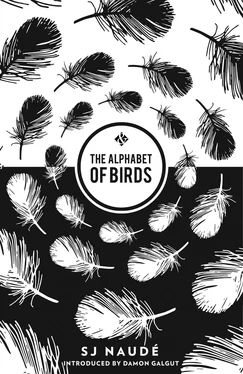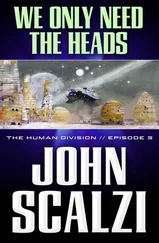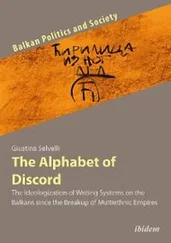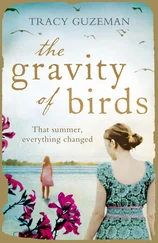‘And please look after the house, there’s no one else to do it. When I pass on, it all goes to my children. Remember that.’
‘Of course, Mrs Zuckermann.’ (And who exactly, does the woman imagine, ought to be paying all the bills?)
‘Everything in order at home? The garden still neat?’
‘Winter hasn’t touched your garden, Mrs Zuckermann. It’s as lush as if it were midsummer.’ (Is she expecting Ondien to pay the gardener too?)
‘How about Arthur? Still his happy self? Not missing me?’
Ondien has to think for a moment. Her husband’s name was Samuel. Then she recalls the photograph of a dog in Mrs Z’s bedroom. A spaniel that has been dead for years.
‘Fit as a fiddle, Mrs Zuckermann, more boisterous than ever. Welcomes me every time with a swing of the tail.’ Her voice becomes quieter. ‘He does miss you a little, though.’
For the first time Mrs Z smiles wanly.
‘I have to go now, Mrs Zuckermann. I’m leaving you this container I’ve planted with flowers; they should come up soon.’
While Ondien is walking away, she hears Mrs Z tell a nurse to go and throw out ‘this pot of soil’.
When she comes home after the visit, half of the things she took from the house have been stolen from her flat again. A thief amongst thieves, that is what she is becoming. You steal from someone weaker, the stronger ones steal from you. You return to your weaker victim. Things circulate. A life cycle, an ecosystem. She is becoming part of natural life in this country, the instinctive processes sustaining themselves behind shiny surfaces. She is learning, she is approaching the real nature of things. Music and theft are the paths leading her to the light.
She is now penniless; she cannot even afford a cup of coffee in the shopping malls. She survives on what she is able to carry out of Mrs Z’s house. Over the next day or two she takes everything she can fit into her car to a pawnshop in Braamfontein. Before the thieves can lay their hands on it and before her fuel runs out and she is stranded.
At night the activities in Mrs Z’s house continue unabated. One night the footsteps come close to the flat. Ondien holds her breath. There is breathing at the kitchen’s paneless window. From the bedroom, peeking out of the rancid sleeping bag, she is unable to see a face, but she can see little rhythmic clouds of vapour pushing inwards. It glows against light filtering in from outside. Her visitor is sniffing the flat’s smells. A torch clicks on, a beam slips around. She holds her breath. Then voices, outside by the pool. The vapour pulls back, the footsteps move away. Then she hears them scale the wall, out towards the street.
She remembers Flame, somewhere in a plastic bag. She finds a spade in Mrs Z’s storeroom. She is surprised it has not been stolen yet. In the main house, there is almost nothing left. The kitchen cupboards have been ripped out. Doors have been lifted from their hinges. Wall-to-wall carpets have been torn from the floor.
She buries the cat. It is the first time in days that she is able to stop writing down music for a while. The soil is hard. It is a shallow grave. Afterwards she sits on a kitchen stool on the unmown lawn. There, in the sun, she performs the funeral march movement of her requiem on the Casio. She is trying it out.
The next evening she is composing again. A siren screams past and breaks her concentration. Silence reigns in her head once more. She can now only think of the electric wires gleaming above the garden wall. But she has to continue, she has to intercept the thick surges of sound in the air. She has to play it inwardly, mutilate herself with it.
Her cellphone rings. She is surprised it has not been cut off; she has not paid a bill for some time. It is Mrs Z.
‘Mrs Zuckermann, what a surprise!’
She is sitting with her feet on one of Mrs Z’s dining-room chairs.
‘Are you my daughter?’
She is wrong-footed.
‘Mrs Zuckermann, your daughter is in America. I’m your lodger.’
‘You’ve never responded to any of my letters. Not even one. And my grandchildren? Do you know what grief it is for me not to know them?’ Her voice cracks. ‘Do you have any idea of my sorrow, dying here alone? In this cruel, dishonest place, this country full of goyim with bloody hands?’
‘You are not alone, Mrs Zuckermann.’
Mrs Z starts to cry softly. The phone goes dead.
She returns to her music sheets and the Casio. To the requiem. She toys with the idea of voices, a choir, and at least fragments of the traditional mass liturgy. But the piece is too amorphous, too unconventional. It is changing shape like a cloud. She cannot get a grip on it. She can only follow where the skull musicians lead. A few voices do ultimately appear; it is becoming a twenty-first-century oratorio. There are monks, chanting atonally, layer upon layer. A soprano voice, briefly, somewhere in the fogginess — a young boy, as pure and clear as the fiercest physical pain: ‘ libera animas omnium fidelium defunctorum de poenis inferni et de profundo lacu .’
Then everything bordering the lyrical, the tonal and the melodic drains away. The music bends, doubles, starts to devour itself. The instruments are now played in all conceivable ways. Strings are ignored, the edges of violins are scratched, flutes are obstructed breathily, the piano is being played with bricks dampening the strings, like a sickly harpsichord. The piano wants to destroy itself, the monks’ throats are constricted, each note an ugly little cry of fear. The devoured body has arrived with the locusts in the underworld. The swarm descends into the swamp. Shards of bone dissolve in locust bellies. This she imagines with one hand on the Casio’s keys — a child’s tinkling is all that emerges.
She stops the tinkling. At the window a face has appeared. She did not hear footsteps. Yet she is not startled. He — the face — neither. They look at each other. For a while neither of them moves. Behind the chirping of crickets and the highway traffic, she hears silence. Highveld silence. Like a dove’s feather against the wrist.
Small and black and shiny, the face. Prominent cheekbones, hollow cheeks. A cruel face, so it seems, but she would not want to judge hastily. She should give him a chance, leave his options open.
‘Come in,’ she says, ‘I’ve been expecting you. The boundaries here are now porous, after all, everyone’s welcome, anyone can come and get. Take what you want. Even my Casio, if you wish. And here’ — she waves the sheaf of music paper in his direction — ‘take the music too if you choose. Perhaps you could perform it somewhere. I’m sure there are many funerals where you come from. Or, even better, burn it on a cold winter’s evening, for a hint of warmth.’
He says nothing. His eyes scan the room, take it all in, settle on her again. She nods comprehendingly at his silence.
‘If it is me you want, I won’t stop you either. As I said, take what you want.’
There is still no sign that he understands her. He pulls himself up by the window frame, hops in with a smooth movement. He is as small as a pygmy. She can smell him. She looks at his hands, considers whether they are skilled enough to skin a cat in a single movement.
She gets up, he stiffens. She moves slowly, turns her back on him, opens the cupboard door to take out two teacups (from Mrs Z’s kitchen, of course).
‘You must forgive me, the kettle’s been stolen. I only have a pan from Mrs Zuckermann’s house in which to boil water. See,’ she smiles and looks around. He is watching her closely. ‘I’m also a looter … Perhaps,’ she says into the cupboard, ‘we can try to be friends. What do you think?’ She continues making tea, looks at him from the corner of her eye. He opens the cupboard behind him, throws things on the floor. He gets hold of a box of salty biscuits, takes what is left, throws the empty packet on the floor. The crumbs fall from his mouth as he is eating.
Читать дальше












